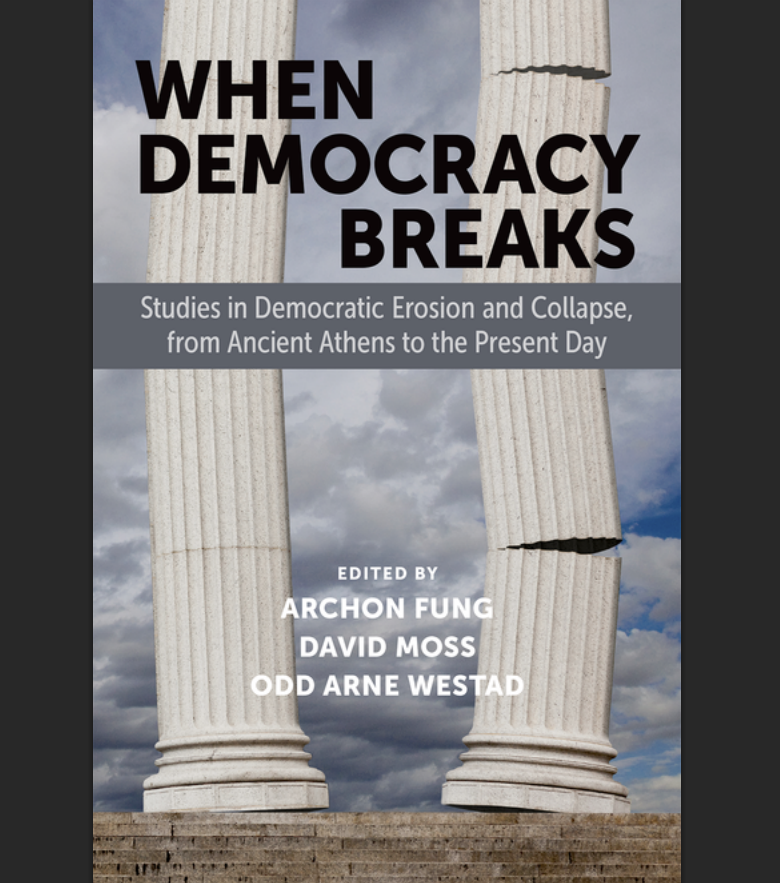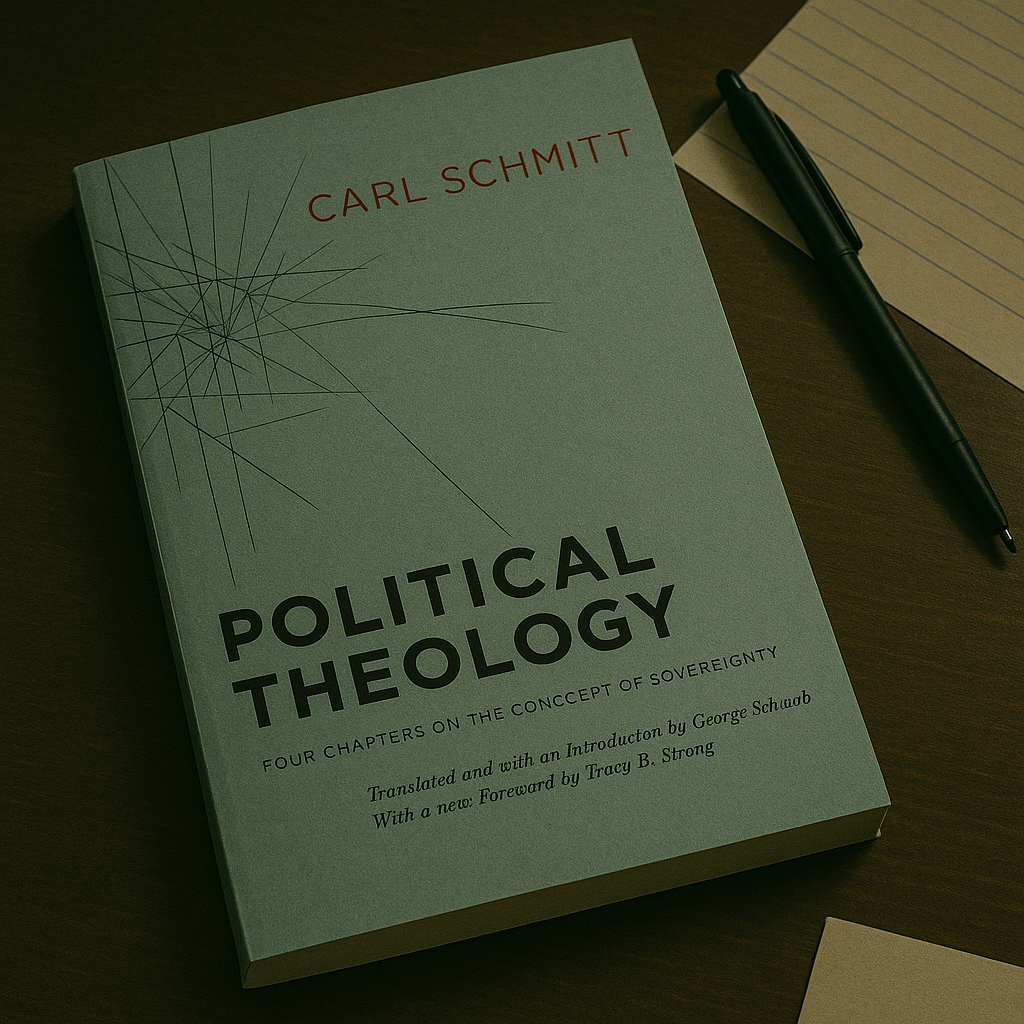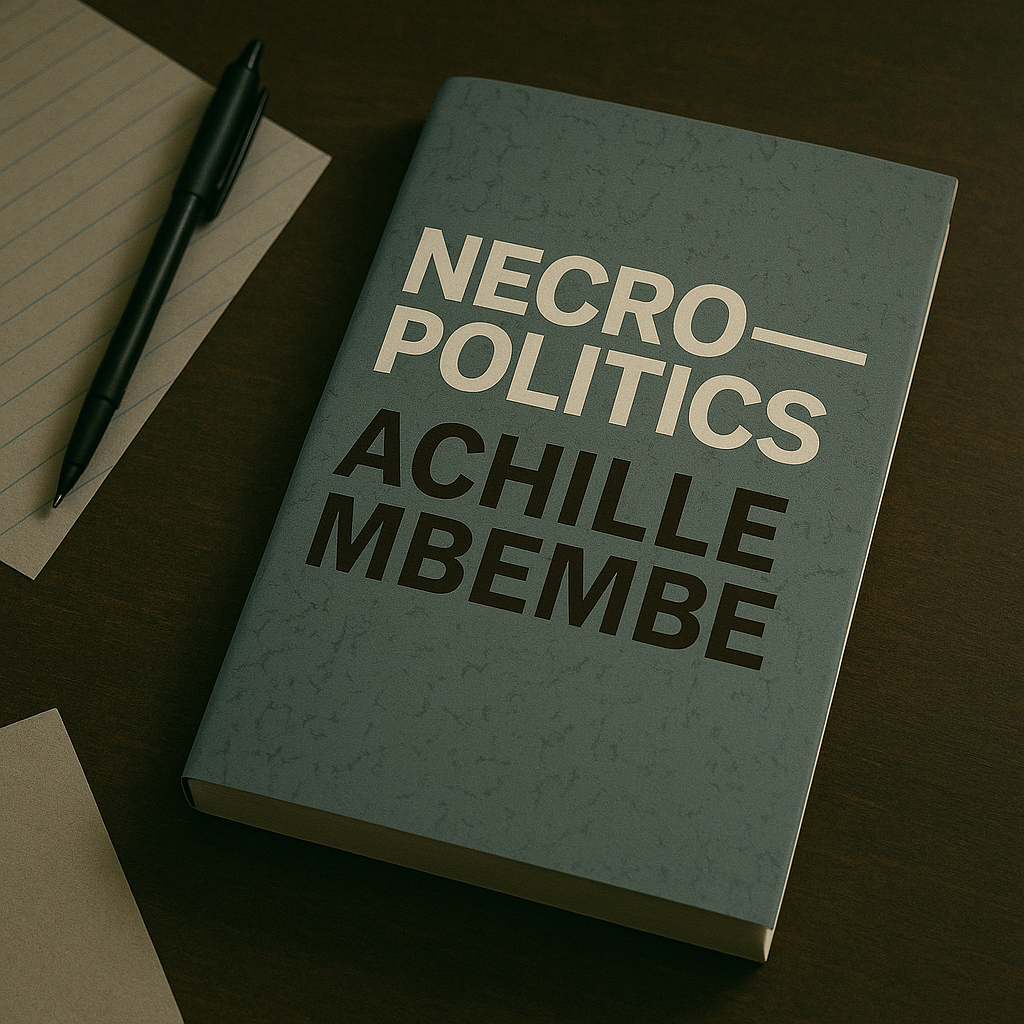
The Bookshelf
Welcome to the Institute for the Study of States of Exception Bookshelf, a curated collection of materials exploring the theory and practice of states of exception. Here you’ll find texts and insights from leading thinkers in political theory, constitutional law, history, philosophy, and international relations. These resources are designed to inform, challenge, and support ongoing research and dialogue on the use and consequences of states of exception.
“Security and emergency are two sides of the same coin, justifying ever more intrusive state measures.”
— Mark Neocleous (Critique of Security, 2008)
Democracy and authoritarianism have been historically bound in a complex and sometimes intimate relationship. The global emergence of quite a few democratically elected authoritarian leaders today has made explicit what had always been an underlying feature of the history of democratic practice. The authoritarian strain was perhaps more marked in countries aspiring to democracy by shedding an inheritance of colonial despotism. India’s experiment with democracy after winning independence from British rule offers a fascinating case study of the struggle to establish democratic norms amid the lure of falling back on the structures of an authoritarian legacy.
This book addresses the relevance of the state of exception for the analysis of law, while reflecting on the deeper symbolic and jurisprudential significance of the coalescence between law and force.
The concept of the state of exception has become a central topos in political and legal philosophy as well as in critical theory. The theoretical apparatus of the state of exception sharply captures the uneasy relationship between law, life and politics in the contemporary global setting, while also challenging the comforting narratives that uncritically connect democracy with the tradition of the rule of law. Drawing on critical legal theory, continental jurisprudence, political philosophy and history, this book explores the genealogy of the concept of the state of exception and reflects on its legal embodiment in past and present contexts – including Weimar and Nazi Germany, contemporary Europe and Turkey. In doing so, it explores the disruptive force of the exception for legal and political thought, as it recuperates its contemporary critical potential…
The COVID-19 pandemic has led a large range of European governments to rely on emergency powers to try to contain the pandemic. While emergency legislation grants the executive with more extensive powers to handle an immediate threat to the survival of a community, the extent of such powers, their modalities of activation as well as the monitoring and other roles of counterpowers vary from one country to the next. This chapter analyses the diversity of practices and legal provisions hidden behind the reference to a “state of emergency.” It first shows that the legal basis of such provisions differs. While some governments activated constitutional provisions, others relied on pre-existing crisis-management legal frameworks. Second, the timing and duration of emergency measures ranged from 65 days (Estonia) to 861 (France). It then assesses whether differences in the legal framework used translated into differences in the stringency of the measures introduced. On the one hand, state of emergency provisions shield democracy against a concentration of powers in the hands of the executive better than disaster-management legislation does. On the other hand, the activation of emergency powers also coincides with more stringent restrictions of fundamental rights. In strengthening legal preparedness to future crises, policy makers need to be particularly cautious in devising legal arsenals that maintain high levels of democratic governance and oversight in crisis times…
Carl Schmitt’s influential treatise, Political Theology (1922), represents a seminal and provocative contribution to political theory, particularly in its exploration of sovereignty, law, and states of exception. It remains a pivotal, yet contentious work for understanding the mechanics of sovereign power and the legal foundations of states of exception. Schmitt's central thesis, that the sovereign is defined primarily by the authority to decide upon exceptions or extraordinary circumstances, recasts traditional understandings of political legitimacy and authority…
Giorgio Agamben’s State of Exception (2005) is among the most influential texts in contemporary political philosophy addressing the implications of emergency powers and their relationship to democratic governance. Agamben not only builds upon but fundamentally reconfigures Carl Schmitt's seminal theory of sovereignty, meticulously unpacking what he identifies as the central paradox facing modern states: how democratic governments suspend the law purportedly in its defense. For Agamben, the state of exception represents a "zone of indistinction" where the boundaries between law and lawlessness, democracy and authoritarianism, become dangerously blurred…
From concentration camps to refugee settlements, there is little consensus about what exactly defines ‘the camp’. This timely and comprehensive book adopts a geographical perspective to develop a spatial theory of the camp, advancing the interdisciplinary field of camp studies. Richard Carter-White and Claudio Minca explore the spatial logics and practices that unite different camps, demonstrating why the camp has become such an integral tool of contemporary governance and what this reveals about the geopolitics and biopolitics of the modern nation-state…
In Necropolitics (2019), Achille Mbembe, expanding upon a 2003 essay of the same name, offers a profound reconceptualization of sovereign power that significantly advances our understanding of states of exception. Building upon Michel Foucault's biopolitics, Mbembe introduces "necropolitics"—the politics of death whereby sovereign power, deeply entrenched in colonial and racial hierarchies, dictates who may live and who must die. What distinguishes Mbembe's intervention is his insistence that states of exception have evolved beyond temporary suspensions of normal legal order (as theorized by Carl Schmitt and Giorgio Agamben) into permanent techniques of governance, particularly for subjugated populations…
Emergency provisions in the Indian Constitution establish a framework that allows the government to respond to crises threatening the sovereignty, integrity, security, or the constitutional machinery of the nation. This framework, articulated in Part XVIII of the Constitution, is categorized into three types: National Emergency, State Emergency (President's Rule), and Financial Emergency. Each type has its own specific criteria and implications for the political and civil rights of citizens. The safeguards embedded in these provisions aim to ensure that the use of emergency powers is not arbitrary, protecting democracy from potential misuse. This paper examines the historical context, rationale, and implications of these provisions, alongside the constitutional safeguards designed to prevent abuse of power…
Giorgio Agamben’s Homo Sacer: Sovereign Power and Bare Life (1995) stands as a watershed text in political philosophy, offering an incisive analysis of how states of exception can threaten democratic governance. Building on Carl Schmitt's provocative claim that "the sovereign is he who decides on the exception," Agamben uncovers the troubling paradox at the heart of modern political systems: that the legal order in fact depends on the power to suspend itself…
Walter Benjamin’s 1921 essay Critique of Violence offers a profound philosophical investigation that has become foundational to understanding the complex relationships between law, violence, and sovereign power. The essay's significance to studies of states of exception lies in Benjamin's careful dissection of violence's role in legal frameworks—not as aberrations, but as structural features of political systems themselves…
Hannah Arendt’s The Origins of Totalitarianism (1951) stands as a foundational text for understanding how democratic societies can transform into totalitarian regimes. While Arendt doesn't explicitly employ the term state of exception her work foreshadows the concept, detailing how the seemingly temporary suspension of legal protections during crises can become a permanent feature of authoritarian rule. Her work meticulously traces how factors such as European colonialism, antisemitism, and the manipulative use of ideological propaganda facilitated unprecedented concentrations of executive power in Nazi Germany and Stalinist Russia…











